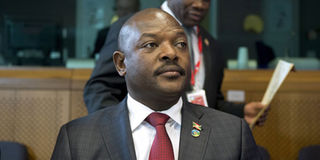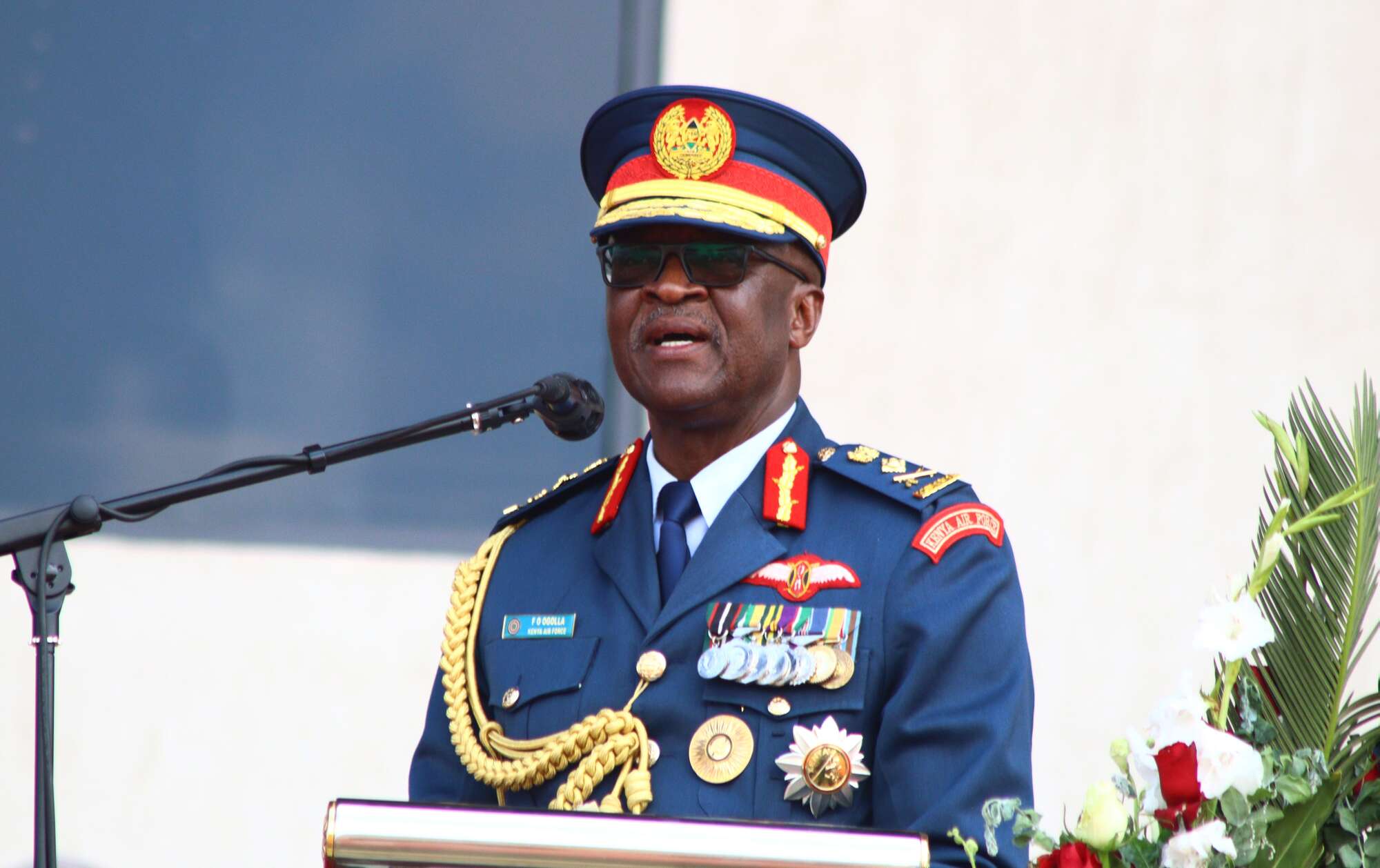Burundi: Nkurunziza 'fails to return'

Burundi's President Pierre Nkurunziza. AFP PHOTO
Burundi President Pierre Nkurunziza has been unable to return home following reports that a coup was taking place while he was out of the country.
Mr Nkurunziza flew back from a summit in Tanzania, but the airport had been closed to stop him from landing. His plane reportedly returned to Tanzania.
Heavy fighting has been taking place overnight between soldiers loyal to the president and those who back the coup.
Confusion remains as to whether the coup has been successful or not.
The coup was announced by Maj Gen Godefroid Niyombare, a former intelligence chief and ally of the president who was dismissed in February, after Mr Nkurunziza left for Tanzania on Wednesday.
Thousands of people took to the streets to celebrate the announcement.
What's behind the coup bid?
But overnight, army chief of staff Gen Prime Niyongabo - a supporter of the president - announced: "The attempted coup... has been stopped."
His announcement came after a night of negotiations between Gen Niyongabo and the defence minister, who backs the coup, reports the BBC's Maud Jullien from Bujumbura.
But there appears to be little sign of that agreement within the armed forces itself.
Factions loyal to each side began fighting each other for control of the national television and radio station, witnesses said.
There has been mounting unrest in Burundi since President Nkurunziza, who came to power in 2005, announced he was seeking a third term in office - apparently in contravention of the constitution.
Announcing the coup, Gen Niyombare said he did not recognise the leadership because the president's bid for a third term violated the constitution.
"The masses vigorously and tenaciously reject President Nkurunziza's third-term mandate. President Pierre Nkurunziza has been relieved of his duties. The government is overthrown," he said in a radio broadcast.
The peace accord that brought an end to Burundi's brutal 12-year ethnic civil war ensured that the future army would be split 50-50 between minority Tutsis and majority Hutus.
This means that unlike the police, whose officers have been forceful in putting down the anti-third term protests, the army is regarded as a neutral force.
Nevertheless within the military there are internal divisions - with former Hutu rebels regarded as loyal to the ruling party and those in the old Tutsi-dominated army seen as loyal to the opposition.
The surprise about this coup declaration is that it comes from Gen Niyombare, once a close ally of the president.
However, it is unclear whether the general, fired as intelligence chief in February, can command the loyalty of all soldiers.
A few hours later the Burundi presidency dismissed the coup attempt, saying: "It is with regret that we have learned that a group from the armed forces mutinied this morning and declared an imaginary coup.
"This coup attempt has been foiled and that these people, who read the coup announcement on the radio, are being hunted by defence and security forces so that they can be brought to justice."
Mr Nkurunziza had been in Dar es Salaam to discuss the crisis with regional leaders.
Officials there told the BBC that he flew back to Burundi upon learning of the coup, but the airport had been shut to prevent him landing, and so he had returned to Dar es Salaam. It is not clear if he remains there.
Tanzanian President Jakaya Kikwete said the summit had condemned the coup, adding: "The region will not accept, nor will the region stand by, if violence does not stop or escalates in Burundi."
The US and UN have appealed for calm.
The unrest began on 26 April and has led to the deaths of more than 20 people.
Tens of thousands of Burundians have fled to neighbouring states in recent weeks.
President Nkurunziza has rejected calls to postpone next month's election. However, the summit in Tanzania urged him to do so.
The 51-year-old former rebel leader argues that he is entitled to run for a third term because he was first appointed to the role by parliament in 2005.
The constitution states a president should govern only for two terms, but earlier this month a court upheld Mr Nkurunziza's interpretation.
BBC



